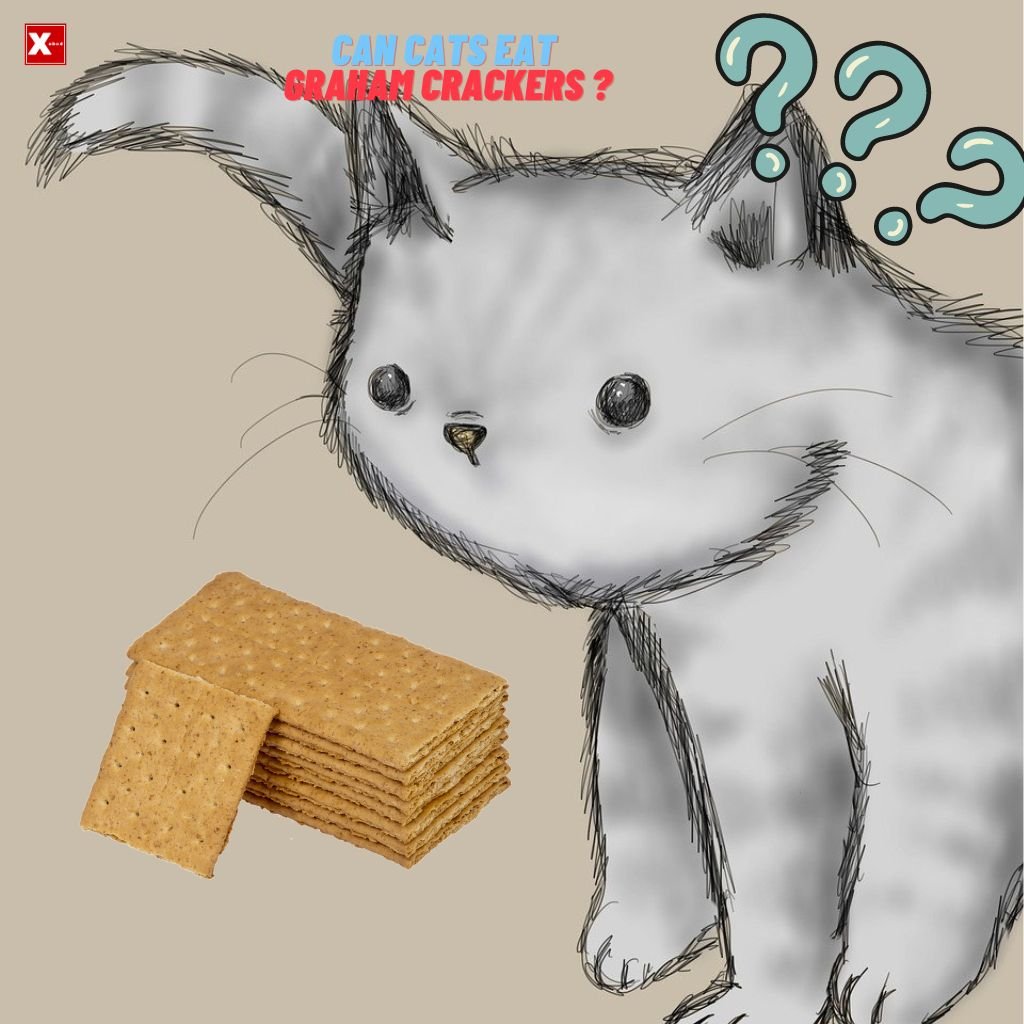Whole wheat crackers are safe to give to cats in small amounts and can be offered as a snack. But there are some risks if your cat eats too many graham crackers. Let’s take a closer look at cats eating graham crackers and answer some frequently asked questions.
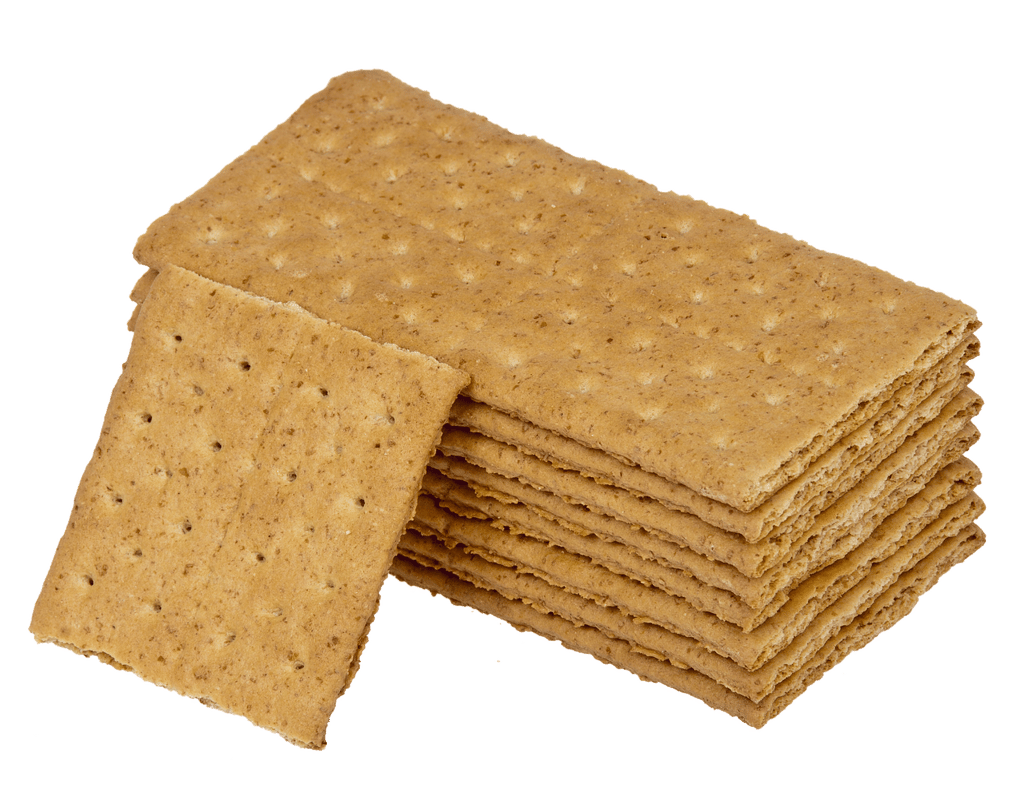
The Ingredients in Graham Crackers
Graham crackers are a popular snack made from a combination of whole wheat flour, sugar, and various other ingredients. While these ingredients may be safe for humans, it's important to consider their potential impact on our feline friends.
The main component of graham crackers is whole wheat flour, which provides a good source of fiber. Fiber is essential for digestive health and can help regulate bowel movements in cats, just as it does in humans. However, cats have different dietary needs compared to humans, and their digestive systems are more tailored for consuming animal-based proteins.
In addition to whole wheat flour, graham crackers often contain sugar and other sweeteners. Cats do not have a sweet taste receptor, so they are not naturally drawn to sugary foods. Too much sugar in a cat's diet can lead to obesity, dental issues, and even diabetes. Therefore, it's crucial to avoid feeding your cat treats that are high in sugar.
Furthermore, some graham crackers may also contain ingredients such as honey, cinnamon, and vanilla extract. While these flavors may be enticing to us humans, they can potentially cause mild gastrointestinal upset in cats. It's important to remember that cats have sensitive digestive systems, and introducing unfamiliar ingredients can lead to an upset stomach or diarrhea.
- Whole wheat flour provides fiber for digestive health.
- Excessive sugar can lead to obesity, dental problems, and diabetes in cats.
- Ingredients like honey, cinnamon, and vanilla extract may cause gastrointestinal upset.
While the ingredients in graham crackers are generally safe for humans, it's important to consider your cat's specific dietary needs and sensitivities. Feeding your cat a balanced diet of high-quality cat food that meets their nutritional requirements is the best way to ensure their overall health and well-being. However, if you still wish to offer your cat a small taste of graham cracker occasionally, make sure it does not contain any harmful additives and always do so in moderation.
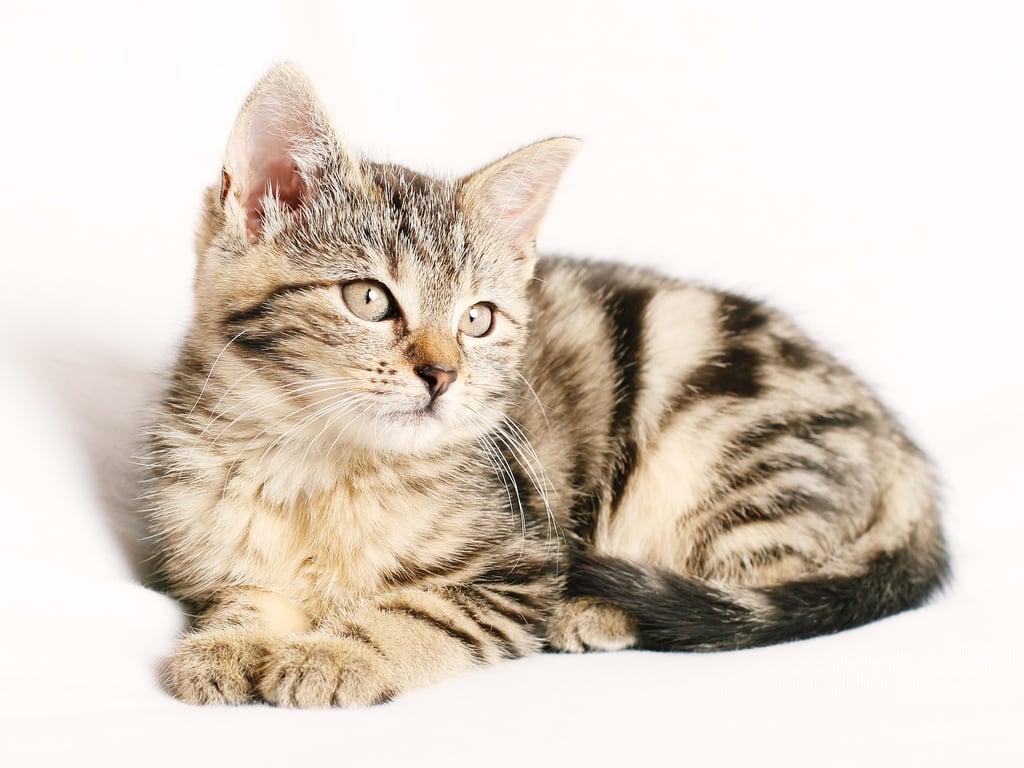
Possible Risks for Cats
While it might be tempting to share your graham crackers with your cat, there are some potential risks to consider. Although graham crackers are generally safe for humans, they may not be as suitable for our feline friends. Here are a few reasons why:
- Milk and dairy ingredients: Many graham cracker recipes contain milk or dairy products, which can be problematic for cats. Cats are lactose intolerant, meaning their bodies have difficulty digesting lactose, the sugar found in milk. Feeding your cat graham crackers could lead to digestive issues such as diarrhea, bloating, or an upset stomach.
- Additives and sweeteners: Graham crackers often contain additives, sweeteners, and artificial ingredients. Cats have different nutritional needs than humans, and some of these additives may not be suitable for them. For example, certain sweeteners like xylitol can be toxic to cats and should be avoided.
- Potential for weight gain: Graham crackers are not a natural part of a cat's diet and are generally high in carbohydrates. Feeding your cat too many graham crackers or similar snacks can contribute to weight gain and obesity, which can pose serious health risks for your feline companion.
It's important to remember that cats have specific dietary requirements, and their digestive systems differ from ours. While a small nibble of a graham cracker might not cause immediate harm, it's best to avoid feeding them this snack regularly or in large quantities. Instead, focus on providing your cat with a balanced and nutritionally appropriate diet specifically formulated for their needs.
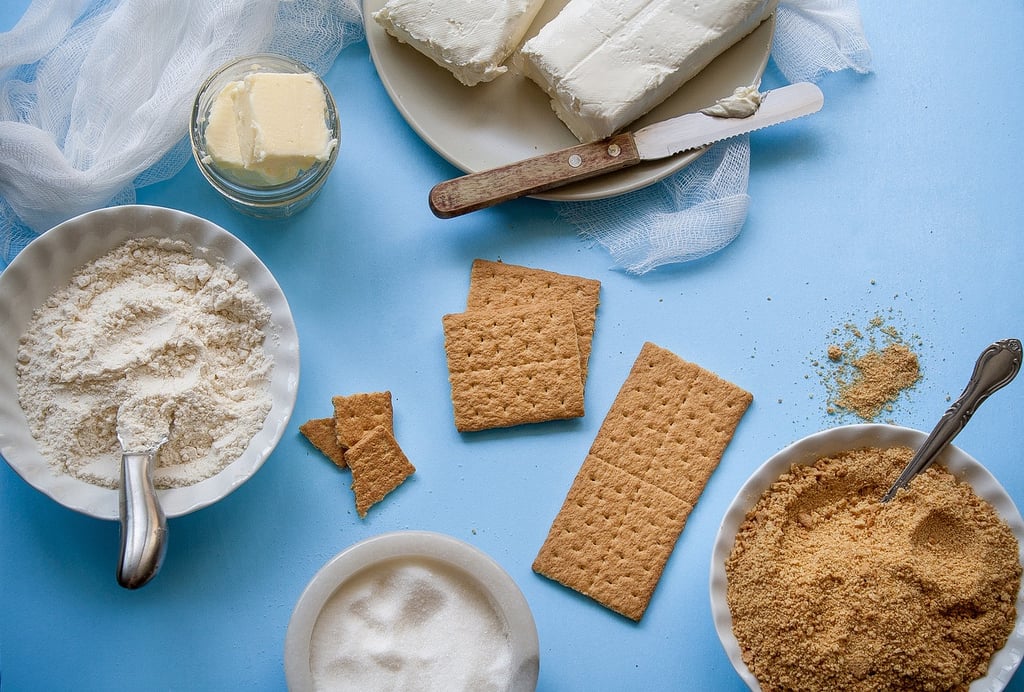
Can Cats Digest Graham Crackers?
One of the main concerns when it comes to feeding graham crackers to cats is whether their digestive system can handle it. Cats have a unique digestive system designed to process a diet consisting primarily of meat. Their bodies are not accustomed to digesting carbohydrates in large amounts, which is a key component of graham crackers.
Graham crackers are made from a combination of ingredients such as flour, sugar, and oils. The flour used is usually wheat flour, which contains gluten. While cats are generally not intolerant to gluten like some humans, their bodies are not well-equipped to break it down efficiently.
When cats consume graham crackers, their bodies may struggle to fully break down and absorb the nutrients from the carbohydrates. This can lead to digestive issues such as diarrhea or an upset stomach. Additionally, the sugar content in graham crackers can cause spikes in blood sugar levels in cats, which can have negative effects on their overall health.
Furthermore, graham crackers often contain added flavors and preservatives that may not be safe for cats. Some common ingredients to be cautious of include chocolate, raisins, and artificial sweeteners like xylitol. These substances can be toxic to cats and should be avoided at all costs.
Conclusion: While cats may be able to consume small amounts of graham crackers without immediate harm, their digestive systems are not well-suited to handle the ingredients found in these snacks. It is always best to prioritize your cat's health and opt for cat-specific treats and snacks instead.
Guidelines:
- Avoid feeding graham crackers to your cat as a regular part of their diet.
- Consult with your veterinarian before introducing any new food to your cat.
- Stick to cat-friendly treats and snacks that are specifically formulated for feline dietary needs.
- Read ingredient labels carefully to ensure there are no harmful substances present.
By following these guidelines and being mindful of your cat's unique dietary requirements, you can ensure they receive the proper nutrition and avoid any potential digestive issues or health risks associated with graham crackers.
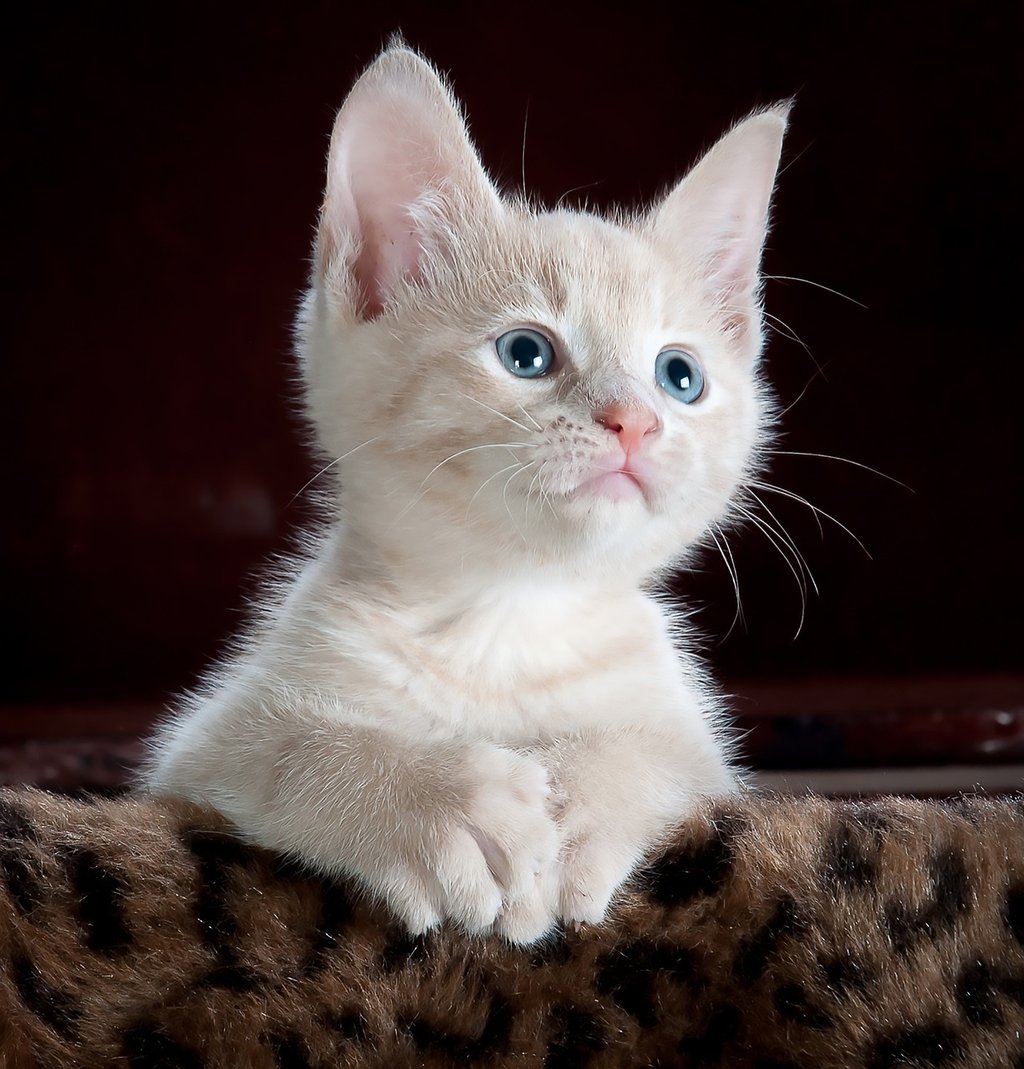
Is It Nutritious for Cats?
When it comes to determining if graham crackers are nutritious for cats, it's important to examine the ingredients and nutritional value of this popular snack. While graham crackers may contain some beneficial nutrients, such as carbohydrates and fiber, they are not specifically formulated to meet a cat's dietary needs.
The main ingredients in graham crackers include whole wheat flour, sugar, and vegetable oil. While whole wheat flour does provide some fiber, cats primarily need protein in their diet. Sugar is not recommended for cats as it can contribute to weight gain and dental issues. Vegetable oil, while not harmful in small amounts, does not offer any significant nutritional benefits for feline friends.
Furthermore, graham crackers may also contain additional flavorings, such as cinnamon or honey, which can be potentially harmful to cats. Cinnamon, in particular, can cause digestive upset and even liver damage in larger quantities. Honey, on the other hand, should be avoided altogether as it can lead to intestinal issues and allergic reactions in cats.
Although graham crackers may seem harmless as an occasional treat, they lack the essential nutrients that cats need to thrive. Feeding your cat a balanced and nutritionally complete diet tailored to their specific dietary requirements is crucial for their overall health and well-being.
- Protein: Cats are obligate carnivores, meaning their bodies require animal-based protein for optimal health. Graham crackers provide minimal amounts of protein, if any, and are not a suitable source for this essential nutrient. It's best to feed your cat high-quality cat food that is rich in animal protein.
- Taurine: Taurine is another vital nutrient for cats, as they are unable to produce it on their own. While graham crackers do not contain taurine naturally, most commercial cat foods are fortified with this amino acid to ensure cats receive an adequate amount.
- Vitamins and Minerals: Cats have specific requirements for vitamins and minerals, including vitamin A, vitamin B complex, calcium, and phosphorus. These nutrients are essential for their growth, development, and overall health. Graham crackers do not offer a significant amount of these vital nutrients, making cat-friendly alternatives a better choice.
Ultimately, while it may be tempting to share your snacks with your feline companion, it's important to prioritize their nutritional needs. Opting for cat-friendly treats that are specifically formulated to meet a cat's dietary requirements is the best way to ensure a balanced diet for your furry friend.
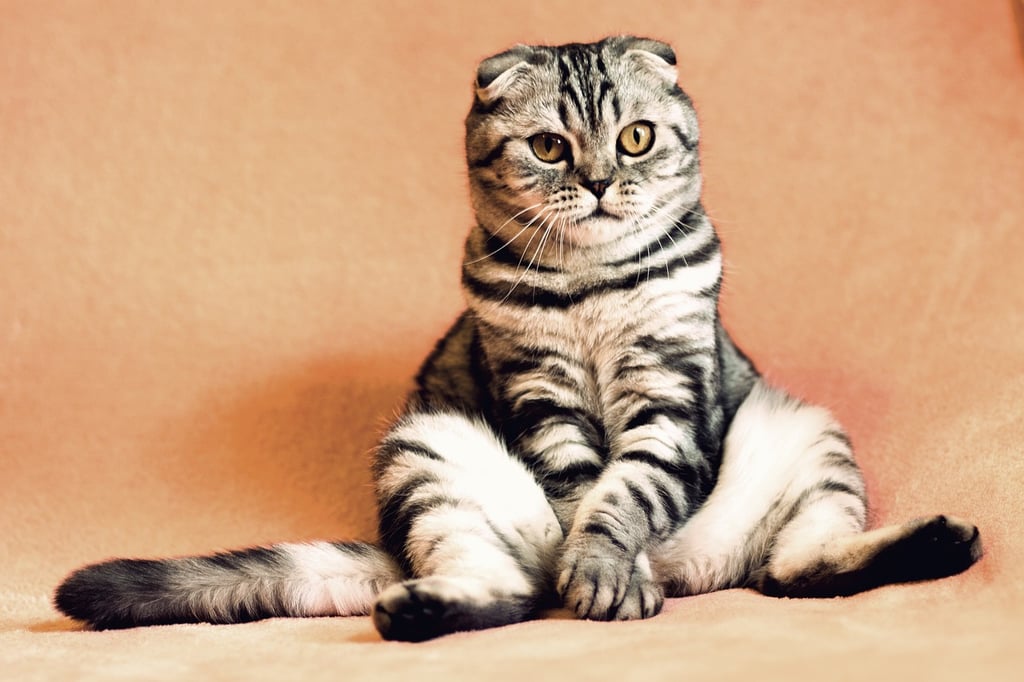
Alternatives to Graham Crackers for Cats
While graham crackers may not be the best option for cats, there are plenty of other treats you can offer your feline friend that are safe and nutritious. Here are some alternatives to consider:
- Commercial Cat Treats: There are numerous cat treats available in pet stores that are specifically formulated for feline nutrition. Look for treats that are made with high-quality ingredients and are free from artificial additives.
- Fruits and Vegetables: Many cats enjoy small portions of certain fruits and vegetables. Offer your cat small pieces of cat-friendly options like bananas, blueberries, carrots, or cooked green beans. However, it's important to remember that not all fruits and vegetables are safe for cats, so do your research before offering anything new.
- Cooked Meat: Cats are obligate carnivores, and including cooked lean meats in their diet can be a great source of protein. Offer your cat small pieces of cooked chicken, turkey, or fish as a tasty and healthy snack.
- Catnip: While not a food alternative, catnip can be a great way to treat your cat and provide mental stimulation. Many cats enjoy the scent and taste of catnip, so offering a small amount in a toy or sprinkle it on a scratching post can be a delightful experience for your furry friend.
Remember, when introducing any new treats or foods to your cat, it's important to do so gradually and in moderation. Pay attention to your cat's reactions and consult with your veterinarian if you have any concerns or questions about what is safe for your specific cat.
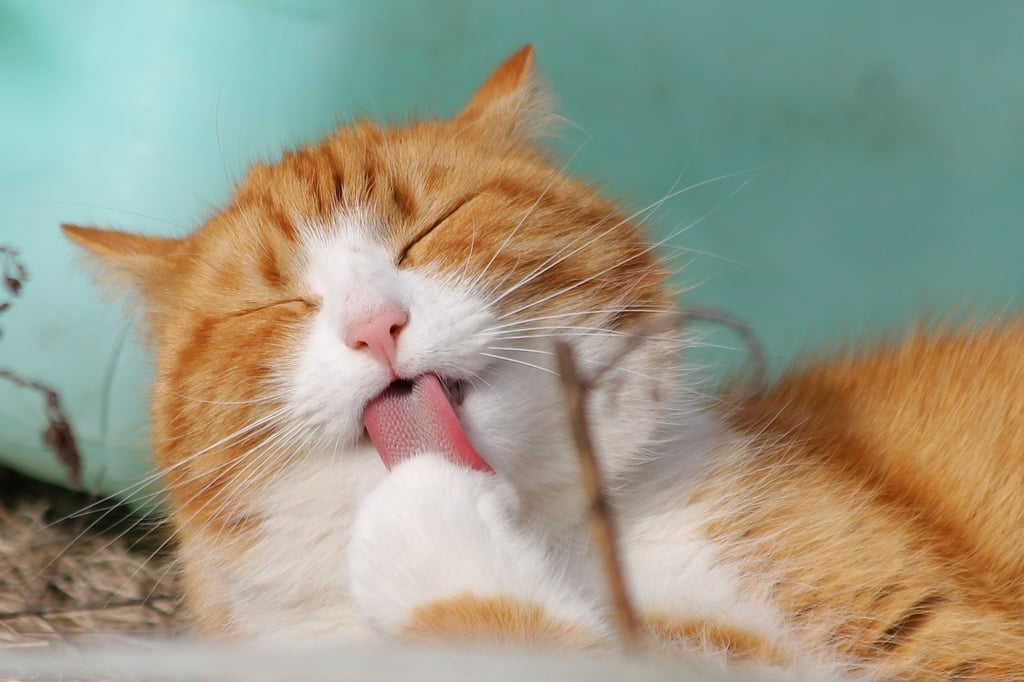
Feeding Treats to Your Cat Responsibly
While cats may enjoy the occasional treat, it's crucial to feed them responsibly to maintain their overall health. When it comes to graham crackers or any treat, moderation is key. Here are some tips to ensure you're feeding treats to your cat responsibly:
- 1. Portion Control: Treats should only make up a small portion of your cat's diet. Overfeeding can lead to weight gain and potential health issues. Stick to a specific number of treats per day, and adjust the amount based on your cat's age, weight, and activity level.
- 2. Choose Cat-Friendly Treats: While graham crackers may not be toxic to cats, they are not specifically formulated for feline dietary needs. Opt for treats that are specially designed for cats, which can provide the necessary nutrients and be more easily digestible for your furry friend.
- 3. Check the Ingredients: Always read the ingredients list before offering any treats to your cat. Avoid treats that contain artificial additives, preservatives, or excessive amounts of sugar and salt. Look for natural and high-quality ingredients that promote your cat's well-being.
- 4. Consult with Your Veterinarian: It's always a good idea to consult with your veterinarian before introducing any new treats into your cat's diet. They can provide personalized advice based on your cat's specific health needs and dietary restrictions.
- 5. Monitor Your Cat's Reaction: After giving your cat a treat, observe their reaction and any potential changes in their behavior or digestion. If you notice any adverse effects such as vomiting, diarrhea, or allergic reactions, stop giving that treat and consult your veterinarian.
Remember, treats should be given as an occasional reward and should not replace a balanced and nutritious cat food. Providing your cat with a loving and stimulating environment, regular playtime, and a proper diet will contribute to their overall well-being. And always remember to show your love and affection through petting, cuddling, and spending quality time together, as these are the treats that your cat truly cherishes!
Faqs
-
Can graham crackers be harmful to cats?
While graham crackers are not inherently toxic to cats, they can pose potential risks. The high sugar content and ingredients like chocolate or cinnamon can cause digestive issues, allergic reactions, or even weight gain in cats. It is best to avoid offering graham crackers to your feline friend.
-
What are some cat-friendly alternatives to graham crackers?
If you're looking for safe and enjoyable treats for your cat, there are several options to consider. Some cat-friendly alternatives to graham crackers include freeze-dried meat treats, catnip-infused biscuits, or small bits of cooked chicken or fish. These alternatives are healthier and more appropriate for your cat's nutritional needs.
-
How often should I give treats to my cat?
Treats should be given to cats in moderation. While it can be tempting to indulge your furry friend, excessive treat consumption can lead to weight gain and health issues. It is recommended to limit treats to a maximum of 10% of their daily calorie intake and choose treats specifically formulated for cats to ensure balanced nutrition.

